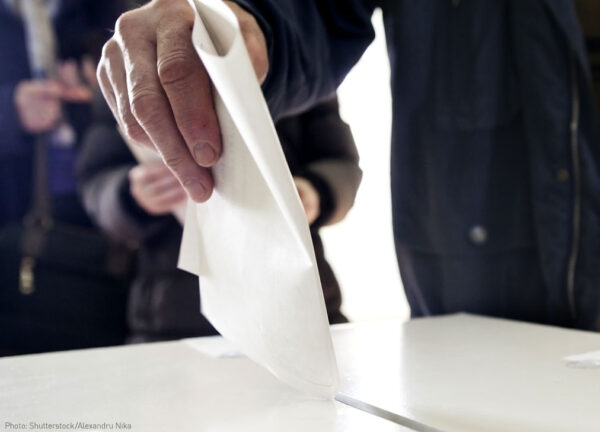South Dakota Agrees To Reinstate American Indian Voters Unlawfully Removed From Rolls
Settlement Reached After ACLU Challenged Illegal Disfranchisement
FOR IMMEDIATE RELEASE
CONTACT: (212) 549-2666; media@aclu.org
SIOUX FALLS, SD – The state of South Dakota and Shannon County, South Dakota agreed to restore the voting rights of American Indians who attempted to vote in the 2008 presidential election but were improperly removed from the voter rolls due to felony convictions. The settlement agreement also calls for procedures to prevent future illegal disfranchisement. The agreement follows a lawsuit filed by the American Civil Liberties Union on behalf of two women of Pine Ridge, South Dakota who were illegally disfranchised. South Dakota state law, which disfranchises individuals sentenced to prison, was improperly applied in this case since both women had been sentenced to probation.
"Voters who had been convicted but never incarcerated have now regained their constitutional right to vote," said Nancy Abudu, senior staff attorney with the ACLU Voting Rights Project. "We are extremely happy that South Dakota and Shannon County are making a serious effort to educate the public and election administrators so that in future elections legitimate voters can exercise their constitutional right to vote and fully participate in our democracy."
In addition to restoring voting rights to those improperly removed from the rolls because of felony convictions that never resulted in prison sentences, the settlement agreement also calls for the establishment of procedures to prevent unlawful disfranchisement from happening in the future, including increased training for election officials and public education.
Kim Colhoff and Eileen Janis, represented by the ACLU, registered to vote for the first time in 1974 and 1984, respectively, and remained on the voter rolls until early 2008, after they were each convicted of a felony offense and sentenced to five years probation but no jail time. Despite the fact that South Dakota only disfranchises those sentenced to prison, Colhoff and Janis were removed from the voter rolls without any notice and denied the right to vote at their polling places when they attempted to vote in the historic 2008 presidential election. In front of several other voters, election officials refused to allow Janis to cast either a regular or provisional ballot.
"I'm very happy that we were able to settle this case with Shannon County and the state," said Janis. "I hope that their efforts to better educate election officials and the public in general about the state's felon disfranchisement law will result in more people exercising their right to vote."
The ACLU filed a lawsuit on Colhoff's and Janis' behalf in February 2009 in the U.S. District Court for the Western District of South Dakota. The lawsuit charged that South Dakota officials' illegal disfranchisement of individuals with felony convictions has had a disproportionate and negative impact on American Indian voters who are overly represented in South Dakota's criminal justice system. The lawsuit also contended that the removal of individuals' names from the state and county voter registration lists based on felony convictions for which they were sentenced only to probation violated their rights to equal protection and due process under the federal and state constitutions, the Help America Vote Act, the National Voter Registration Act and Sections 2 and 5 of the Voting Rights Act.
"This settlement clears the confusion regarding the South Dakota felony disfranchisement laws and adds significant protections to American Indians' voting rights in South Dakota," said Robert Doody, Executive Director of the ACLU South Dakota Chapter. "Unfortunately, felony disfranchisement laws in South Dakota have a disproportionate impact on American Indians who represent the majority of those convicted of felonies at the federal level."
Attorneys on this case are Abudu, Bryan Sells and Laughlin McDonald of the ACLU Voting Rights Project, Doody of the ACLU South Dakota Chapter and cooperating attorney Patrick Duffy.
More information on the case, including the state's settlement agreement, the ACLU's complaint and first amended complaint in Janis v. Nelson are available at: www.aclu.org/racial-justice-voting-rights/janis-v-nelson
An ACLU report providing a historical overview of systemic discrimination against American Indians, limiting their ability to participate in local, state and national elections, can be found at: www.aclu.org/racial-justice_voting-rights/voting-rights-indian-country
More information about the ACLU Voting Rights Project is available at: www.aclu.org/voting-rights



